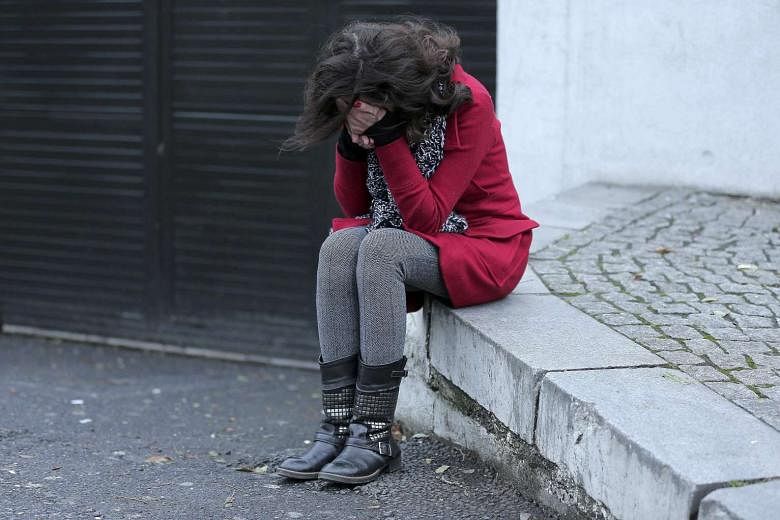ISTANBUL (AFP) - Thirty-nine people were killed and dozens wounded on Sunday when a gunman stormed a popular Istanbul nightclub and sprayed bullets at revellers celebrating the New Year.
Here is what we know about the massacre early Sunday (Jan 1, 2017), the latest to rock Turkey after a bloody 2016.
The assailant shot dead a policeman and a civilian at the entrance to the Reina nightclub and then went on a shooting rampage inside, officials said.
Istanbul governor Vasip Sahin branded it a "terror attack", the latest to strike Turkey after a wave of assaults by ISIS (Islamic State in Iraq and Syria) extremists and Kurdish militants.
No-one has yet claimed responsibility for the nightclub horror.
Interior Minister Suleyman Soylu said the attacker escaped and was now the target of a major manhunt, expressing hope the suspect "would be captured soon".
Prime Minister Binali Yildirim said the gunman was still at large after slipping away unnoticed after the attack. But he denied earlier reports the person had used a Santa Claus costume as disguise.
The attack took place at the swanky Reina nightclub in the Ortakoy district on the banks of the Bosphorus on the European side of the city.
There were reportedly as many as 700 people celebrating the New Year which had chimed just over an hour before the attack.
The club is one of Istanbul's most exclusive nightspots. It is notoriously hard to get past the bouncers who seek out only the best dressed.
Television pictures showed shellshocked revellers in party dress - men in suits and women in cocktail dresses - emerging dazed from the scene of the massacre.
The attack sparked mass panic, with some diving into the Bosphorus Strait between Europe and Asia to escape the bullets. Rescuers battled to salvage them from the water.
Thirty-nine people were killed with another 65 being treated in hospital, the interior minister Soylu said. Four of those injured were said to be in a serious condition.
According to Dogan news agency, 35 of the victims had been identified, 24 of whom were foreigners and 11 Turks.
After a bloody 2016, the authorities were on their guard and at least 17,000 police officers were deployed in the city for the New Year festivities.
Turkey has endured bomb attacks at an airport, a suicide bombing at a wedding and an attack near a top football stadium last year.
The carnage has been blamed either on Kurdish militants or the ISIS group.
Last month, the Russian ambassador was shot dead at an Ankara art gallery by an off-duty policeman shouting "Allahu Akbar" (God is greatest) and "Don't forget Aleppo".
The Turkish army is waging a four-month incursion in Syria to oust the ISIS group and Kurdish militants from the border area.
Rebels from the outlawed Kurdistan Workers' Party (PKK) and what is considered its radical offshoot the Kurdistan Freedom Falcons (TAK) have claimed a spate of attacks since the collapse of a ceasefire in the summer of 2015.
Turkish President Recep Tayyip Erdogan said in a statement that with such attacks, "they are working to destroy our country's morale and create chaos".
US National Security Council spokesman Ned Price said Washington condemned in the strongest terms the "horrific terrorist attack".
"We reaffirm the support of the United States for Turkey, our NATO ally, in our shared determination to confront and defeat all forms of terrorism," he said.
Russian President Vladimir Putin and German Chancellor Angela Merkel expressed their condolences to Erdogan.
"It's hard to imagine a crime more cynical than the killing of civilians during a New Year's celebration," Putin said.
Merkel said: "In Istanbul they committed an inhumane, sneaky attack on people who wanted to celebrate the turn of the year." NATO Secretary General Jens Stoltenberg tweeted: "Tragic start to 2017 in #Istanbul."

